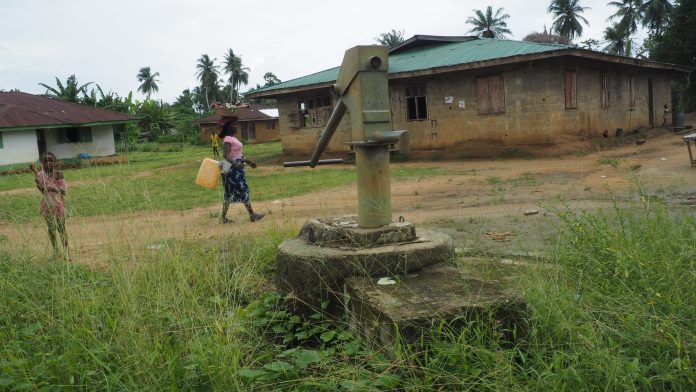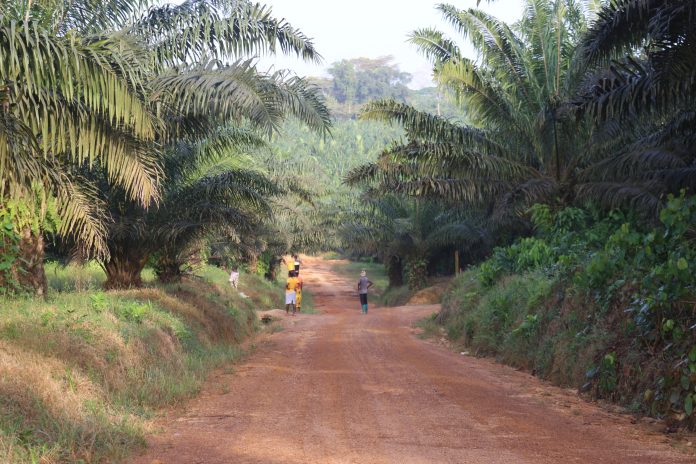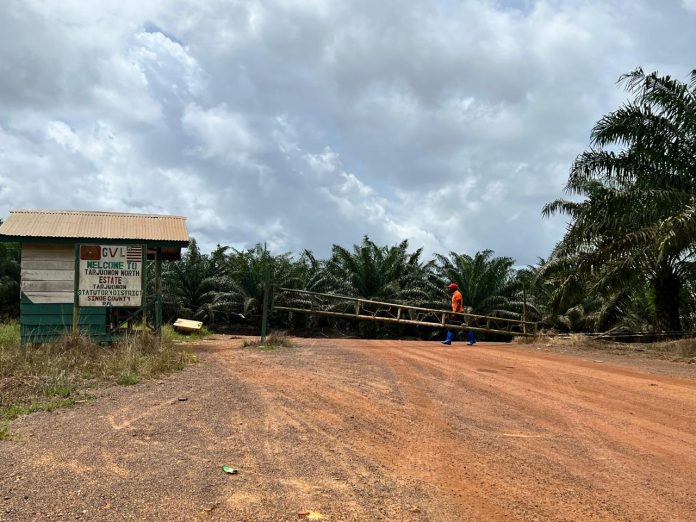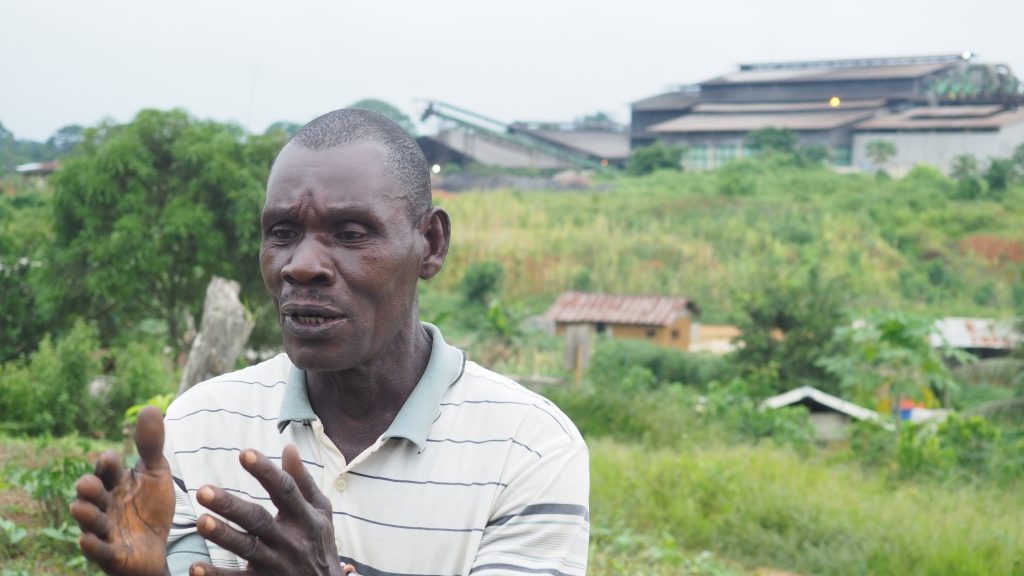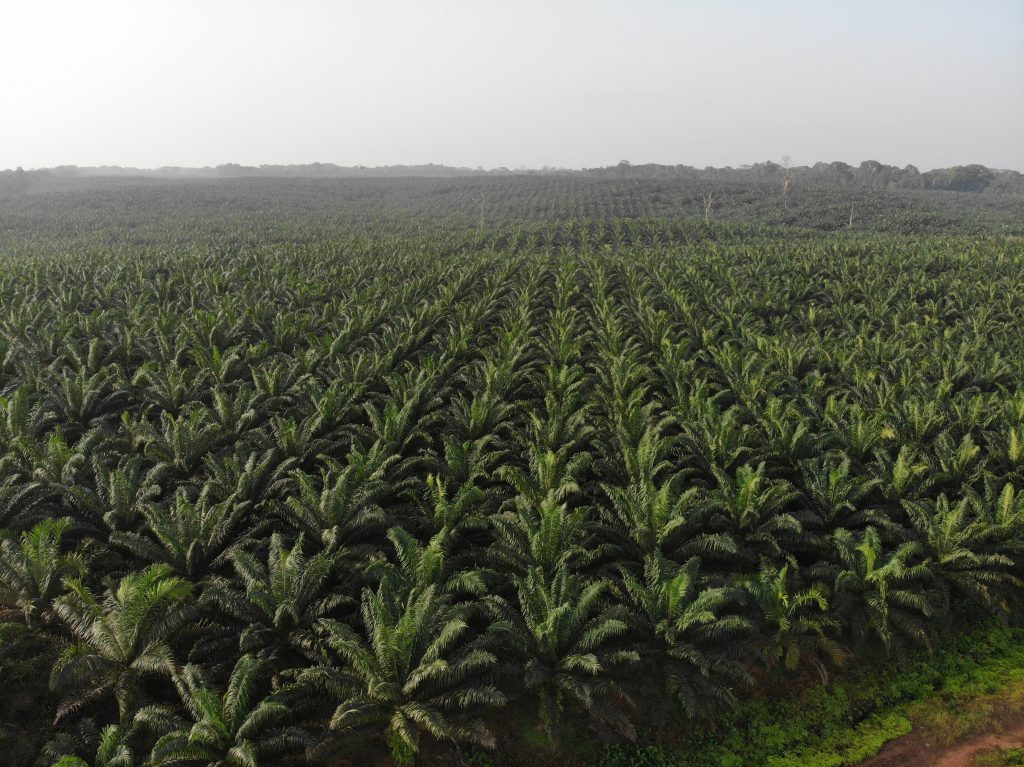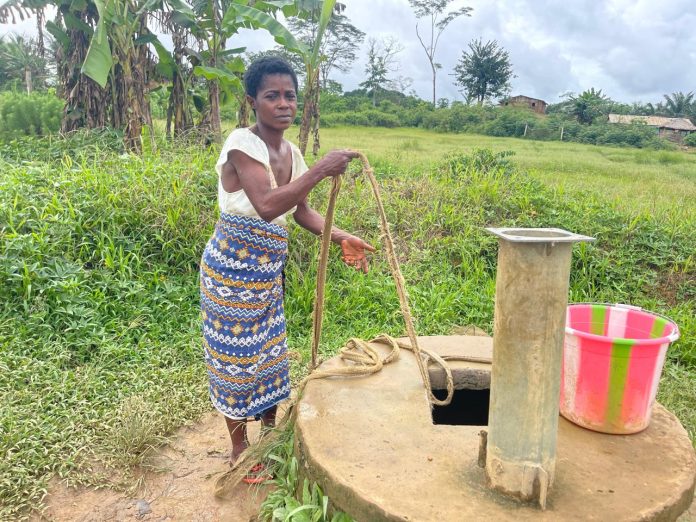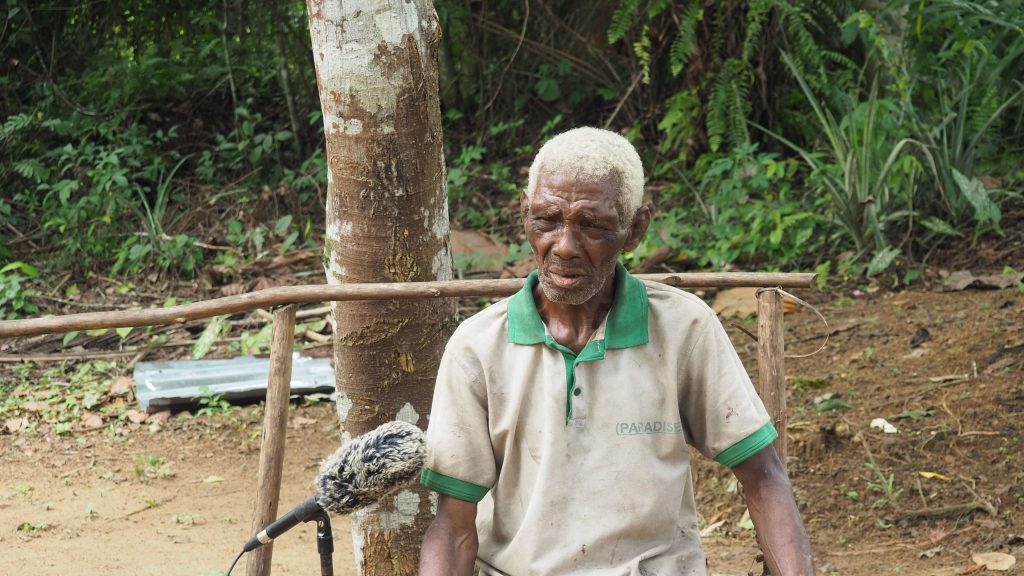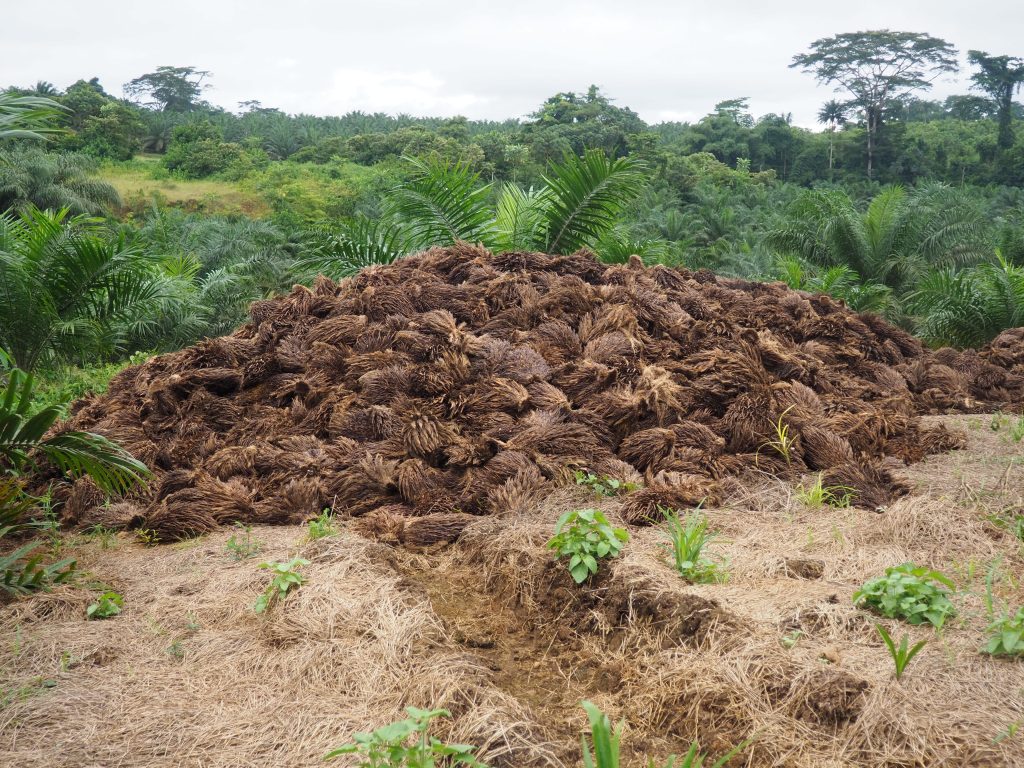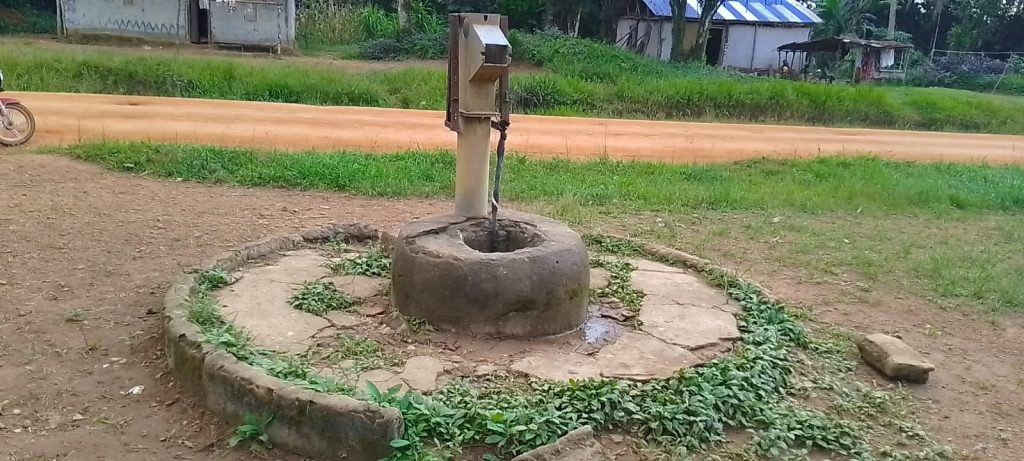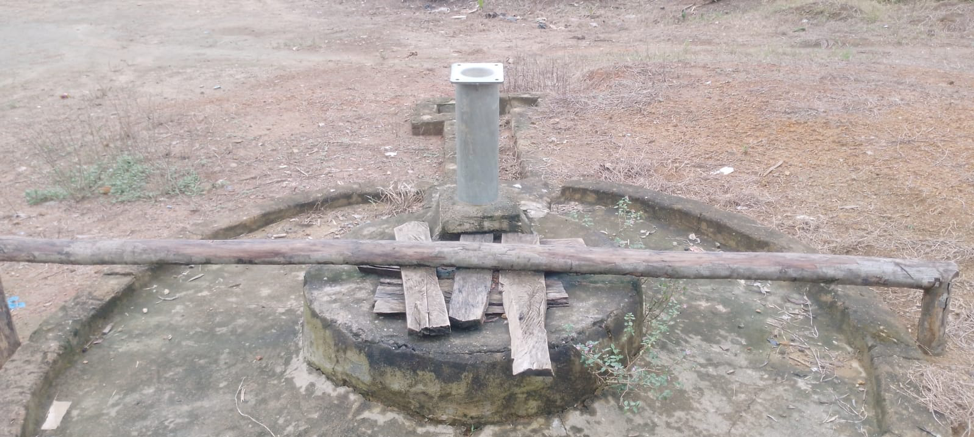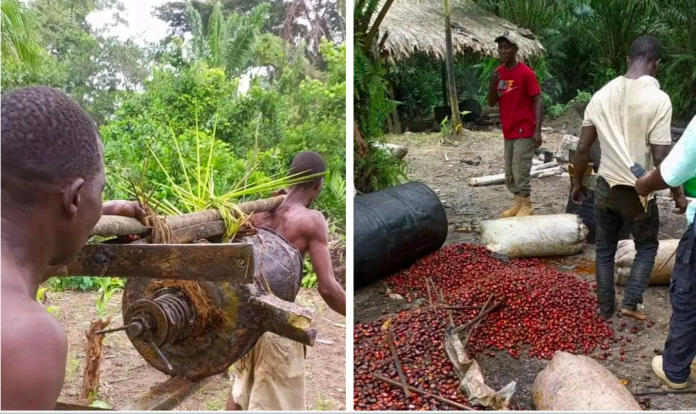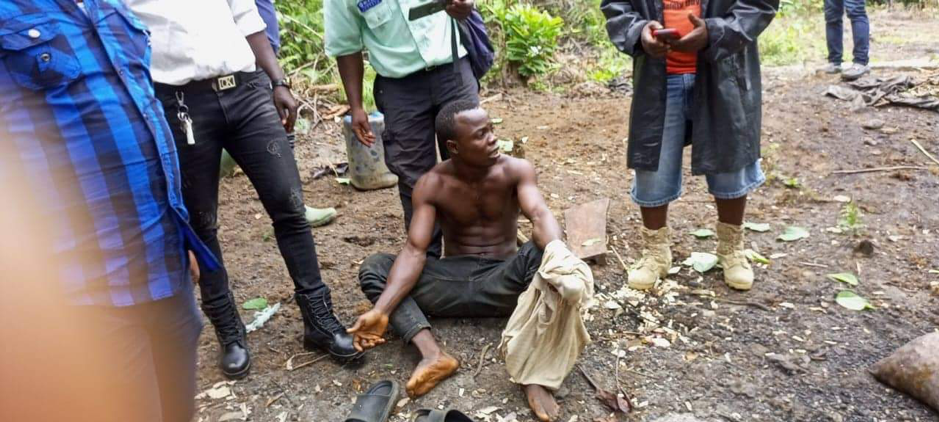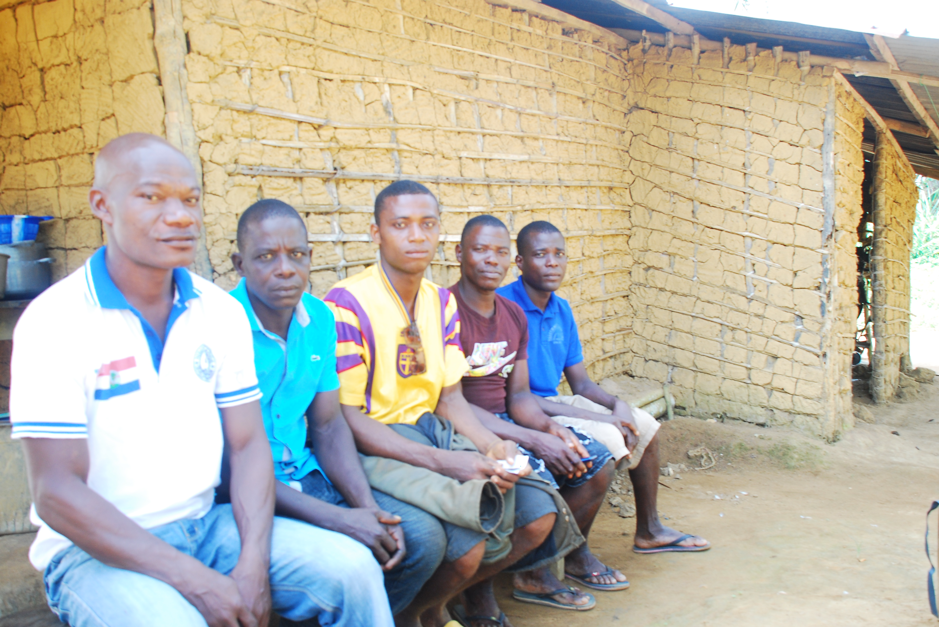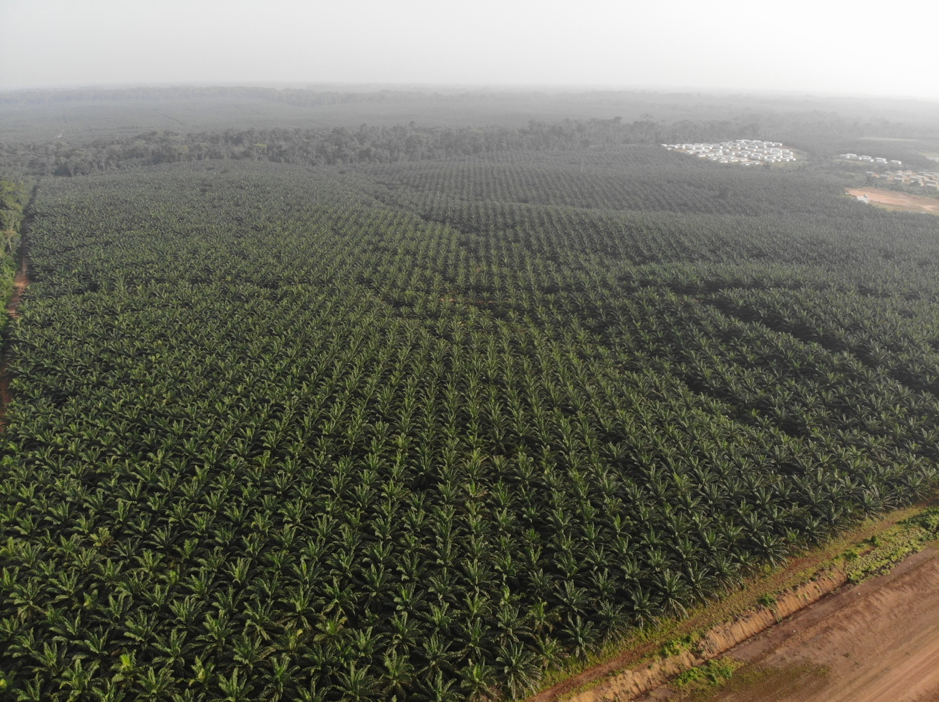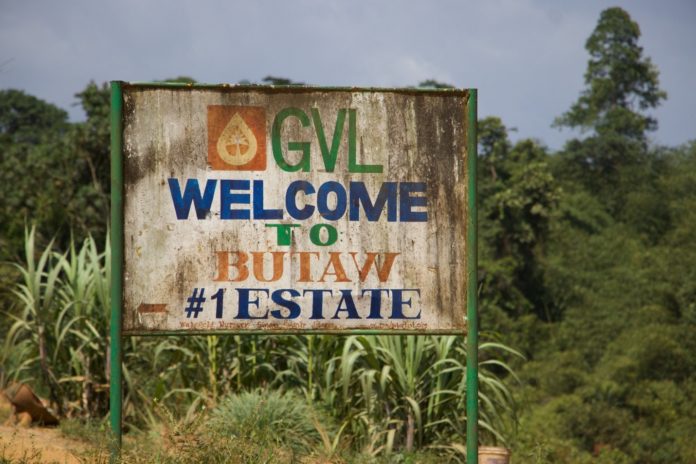Top: A spoiled hand pump in Tubmanville, Tartweh-Drapoh, constructed by an unnamed NGO. The DayLight/James Harding Giahyue
By Emmanuel Sherman
TARTWEH-DRAPOH, Sinoe County – Golden Veroleum Liberia (GVL) has failed to build hand pumps in landowning communities adjacent to its palm plantation, violating an MoU with locals, a DayLight investigation found.
In 2014, GVL signed an MoU with Tartweh-Drapoh. Per the MoU, GVL is obligated to erect hand pumps in towns and villages with 25 to 150 people. The provision is meant to prevent locals from drinking contaminated water, occasioned by the company’s palm plantation.
Documents, broken-down hand pumps and interviews show that GVL did not construct hand pumps in most affected communities. It largely rehabilitated boreholes in some towns, all of which have broken for several years now. Most of the pumps were constructed by NGOs.
“We told them in the MoU we wanted hand pumps,” said Nunu Broh, chairman of the Tartweh Agriculture Committee, a local group representing the interests of locals. “We can’t see [any] changes, we have not gotten any signs,” Broh added.
GVL sidestepped specific questions The DayLight posed, self-proclaiming a commitment to the communities. GVL had refused to grant the newspaper’s request for the MoUs. Alphonso Kofi, GVL’s spokesperson, claimed it had to consult communities, despite the Freedom of Information Act guaranteeing public access to such documents, and transparency being a global oil palm industry’s principle. (The documents are listed on the company’s website but cannot be downloaded.)
Liberia’s largest oil Palm company, GVL signed a 65-year agreement with the country in 2010, covering 220, 000 hectares of land in Sinoe, Grand Kru, and Maryland, River Cess and River Gee. The deal is worth US$1.6 Billion. In its 14 years of operations, GVL has been the subject of national and international reports, documenting its land grab, human rights abuses and water pollution.
‘No changes’
In Tubmanville, the most populous community in Tartweh-Drapoh with 2,000 people, GVL rehabilitated three hand pumps but only one is functional. Reporters photographed the two spoiled hand pumps, one by the roadside, overtaken by rust and bush.
Residents told The Daylight the situation worsened during the dry season when the water table drops, leaving them to depend on creeks. Reporters followed residents to fetch water at a creek about a 15-minute walk through a rocky hillside.
“We have been telling GVL we don’t have a hand pump,” said Comfort Bledee, a longtime resident of Tubmanville. She had made those same remarks one year seven months ago in an earlier interview.
“No changes, nothing,” Bledee added.
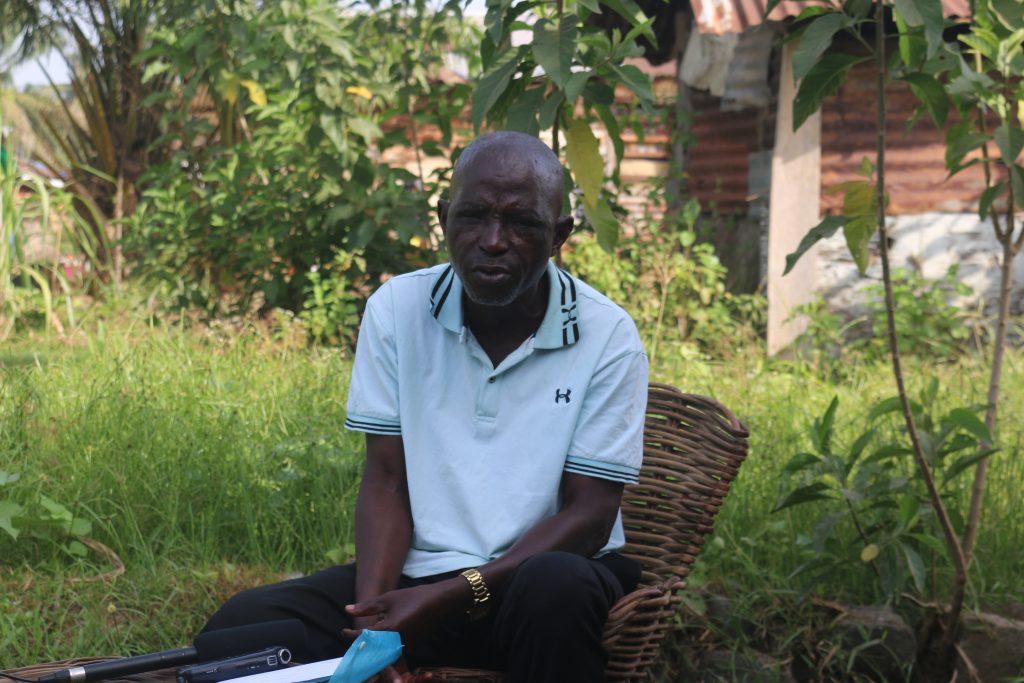
Parleh Town’s 60 people might have dwarfed Tubmanville’s population but that does not spare them from the water problem. The pump in the small town—built by the German Agro Action (GAA) in 2009—works only during the rainy season.
To demonstrate the facility’s seasonal use, Philomena Quejue, the town’s chairlady, pumped several times before water came out, despite being the middle of the rainy season. Quejue said water shortage was a nightmare during the dry season and that they resorted to likely contaminated creeks.
The situations in Saywon Town, Kekpekan Town and Jukpadro are worse.
Home to 90 people, GVL did not build any of Saywon Town’s three hand pumps, residents said. Two of the facilities no longer work.
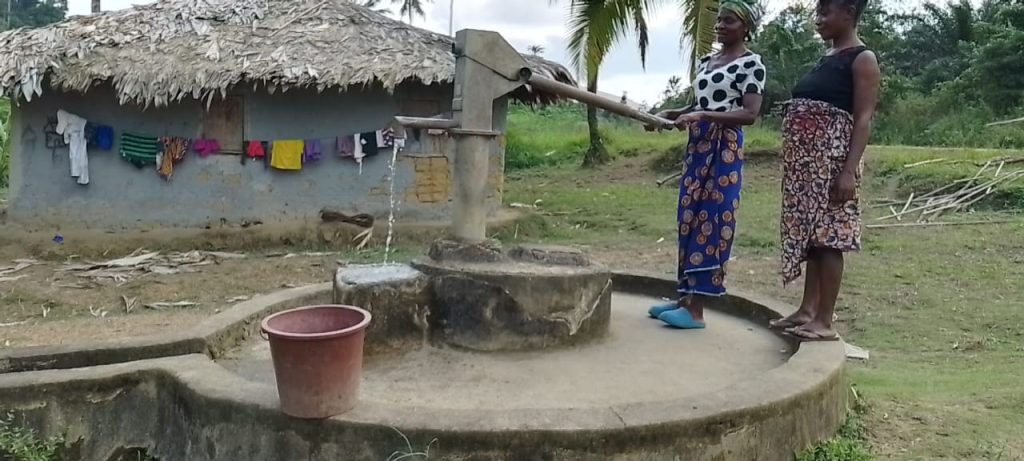
A lone hand pump in Kekpekan Town built by the Catholic Relief Service (CRS) in 2000 has two issues: broken down and close to a graveyard. Per the MoU, GVL is required to build at least one hand pump in the town. However, people now use the creek due to the absence of the facility.
“We are asking GVL to come and fix our hand pump for us,” said Catherine Tarpeh, a townsperson. The DayLight photographed the skeleton of the pump, with its head and handle missing. A long stick was crossed over its well, indicating abandonment.
“We don’t like the creek water because… people can pollute it,” added Elijah Tarpeh, chairman of Kekpekan Town and Catherine Tarpeh’s husband.
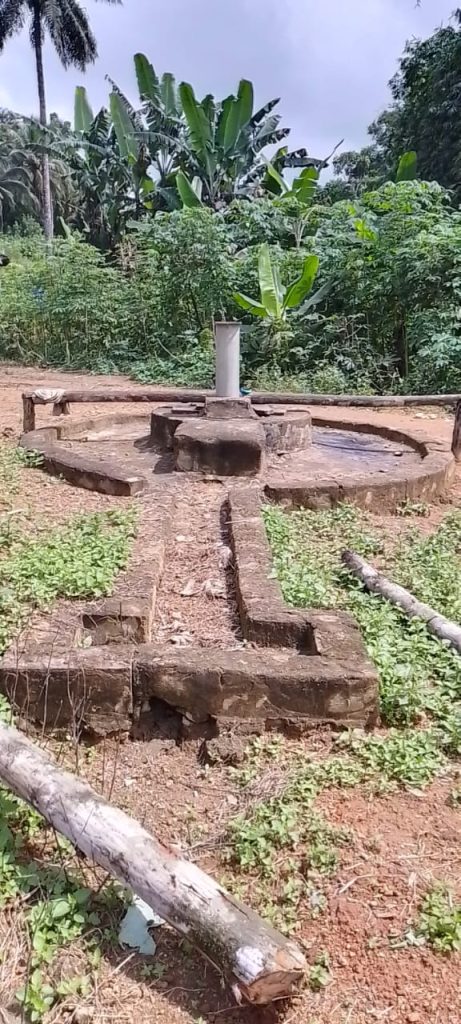
Similarly, GVL failed to build a hand water pump in Jukpadro Town, which has 125 inhabitants. The only one the town has was built by CRS 14 years ago but has spoiled, according to the community.
“We have been engaging and appealing to GVL for another hand pump,” said Jared Toe, a resident. “GVL tells us the town is small they cannot construct a hand pump there.”
‘Total breakdown’
Unlike Jukpadro and the other towns, GVL erected a hand pump each in Netenet Town and Wotto Town. However, those pumps are not working.
In Netenet, 125 inhabitants residents are drinking from creeks. The DayLight reporter photographed the spoiled pump, with the handle missing and a portion of its concrete foundation eroded.
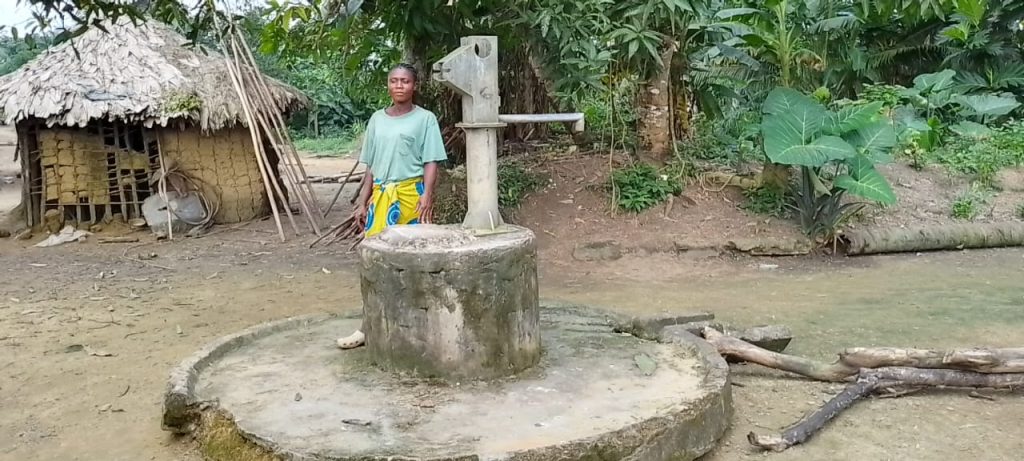
“We can tell [GVL], and they can send people but it can’t be good,” said Uttere Jerboe, a townsperson.
“The creek gets dirty from the roadwork GVL is doing so the water quality gets bad,” said Patricia Chelly, chairlady of Netenet Town, as she stood by the ruined hand pump. “GVL did not treat us well, the Tartweh people.”
GVL constructed the hand pump in Wotto Town in 2019 with 150 inhabitants. However, the only pump has broken down and has not been repaired, residents said.
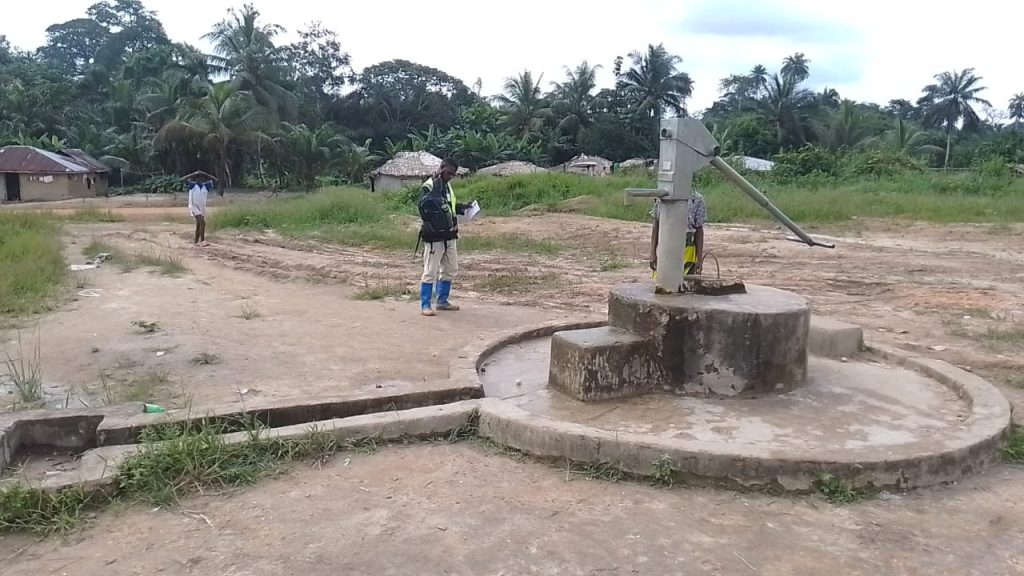
James Otto, a lead campaigner at the Margibi-based Sustainable Development Institute (SDI), blames GVL. Otto said GVL was skipping mandatory, quarterly meetings. “Those quarterly meetings have not been held,” said Otto. “Those are important spaces where the communities and the company can now discuss issues and find redress to them.”
Though it dodged The DayLight’s queries, GVL issued a press release following a pair of investigations the newspaper published earlier this month. In the release, GVL claimed it constructed 40 hand pumps and rehabilitated 70 others in Sinoe communities in the last decade. It even built pumps in areas below the MoU-set, population threshold without presenting any evidence.
Nevertheless, GVL concedes that some of the hand pumps require repair. “This is an ongoing process,” the press release read.. “GVL is negotiating revised MoUs with communities, which will include improvements to this process in the future.”
Green Livelihoods Alliance provided funding for this story. The DayLight maintained editorial independence over the story’s content.

